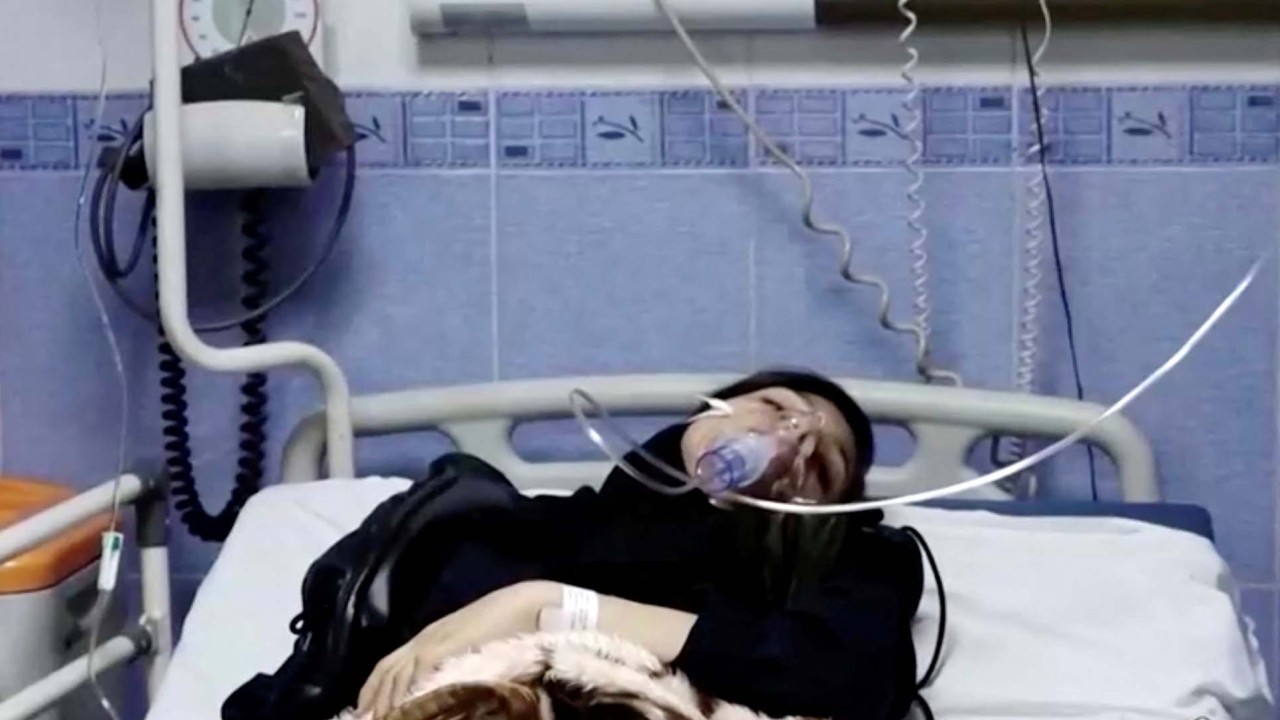
Iran makes first arrests after thousands of schoolgirls poisoned
- Pupils suffered symptoms ranging from shortness of breath to nausea and vertigo after reporting ‘unpleasant’ odours on school premises
- Supreme leader Ayatollah Ali Khamenei has called for the perpetrators to be tracked down, as public anger mounts over the mystery poisonings
Iran announced Tuesday it had made the first arrests in a spate of mystery poisonings of schoolgirls that has affected more than 5,000 pupils since late November.
Supreme leader Ayatollah Ali Khamenei had called on Monday for the perpetrators of the “unforgivable crime” to be tracked down “without mercy” as public anger mounts.
The interior ministry said in a statement on Tuesday “a number of people” suspected of manufacturing hazardous substances had been arrested in six provinces, including a pupil’s parent.
Iran’s deputy interior minister, Majid Mirahmadi, told state television earlier on Tuesday that the “intelligence agencies” had made several arrests, “and the relevant agencies are conducting a full investigation”.
Scores of Iranian schools have been hit by poisonings since late November, with pupils suffering symptoms ranging from shortness of breath to nausea and vertigo after reporting “unpleasant” odours on school premises. Some have been treated in hospital.
“Twenty-five [out of 31] provinces and approximately 230 schools have been affected, and more than 5,000 schoolgirls and boys poisoned,” Mohammad-Hassan Asafari, a member of the parliamentary fact-finding committee, told the ISNA news agency on Monday.
Iranian girls poisoned to stop their education, says official
“Various tests are being carried out to identify the type and cause of the poisonings. So far, no specific information has been obtained regarding the type of poison used.”
The mystery poisonings have triggered a wave of anger and demands for action from the authorities.
According to the interior ministry statement, arrests had been made in Khuzestan, West Azerbaijan, Fars, Kermanshah, Khorasan and Alborz provinces.
One of those arrested had allegedly used their child to insert the “irritant” into the school, and then recorded videos of sick students which were sent to “hostile media” to “create fear … and close schools”, the statement said.
It added three suspects have criminal records “including involvement in the recent riots”, a term used by the Iranian authorities to describe the protests sparked by Mahsa Amini’s death in custody.
Amini, 22, had been arrested over an alleged violation of strict dress rules for women and died on September 16.
President Ebrahim Raisi tasked the interior and intelligence ministries last week with providing continuous updates on the poisoning cases, dubbing them “the enemy’s conspiracy to create fear and despair” among the people.
“In less than 5 per cent of the students transferred to hospital, irritant materials were found which led to their ill-health,” the interior ministry said on Monday. “Fortunately, so far, no toxic or dangerous substances have been found in any of the students transferred to medical centres.”
Deputy health minister Saeed Karimi said symptoms included “respiratory irritation, stomach ache, weakness and lethargy”.
“These inhaled irritants may not necessarily be a gas but may be in the form of a powder or paste or even a liquid, which when poured over a heater or vaporised by heat can cause complications,” he added.
Iran prosecutes woman for ‘disrespecting’ Islamic headscarf
The latest case – reported by the ISNA news agency – involved 40 pupils, all of them female, in the restive southeastern city of Zahedan on Tuesday.
The first cases were reported in Iran’s Shiite clerical capital of Qom in late November, a month after the Amini protests that later spread to universities and schools.
On Tuesday, Tehran prosecutor Ali Salehi warned “those who spread lies and rumours” about the poisonings that “they will be dealt with decisively and legally”, the judiciary’s Mizan Online website reported.
“In the past week, court cases and charges have been filed against the managers of the Hammihan, Rouydad 24 and Shargh media, as well as several individuals,” Salehi added.

.png?itok=arIb17P0)
